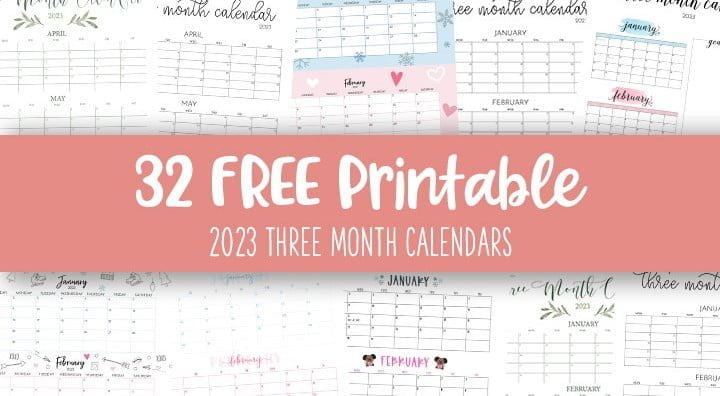How dare you wish me happy Honda days? This phrase, laden with sarcasm and humor, has become a cultural phenomenon, reflecting our society’s obsession with consumerism and the disparity between personal desires and societal expectations.
In this exploration, we will delve into the cultural significance of “Honda days,” the use of humor and sarcasm in the phrase, its implied meaning, and the emotional responses it evokes. We will also examine the phrase’s potential to critique consumerism, its historical origins, and its cross-cultural implications.
Understanding the Sentiment

The phrase “how dare you wish me happy honda days” conveys a strong negative emotional tone. It suggests that the speaker is deeply offended or annoyed by the greeting. This is because the term “honda days” is often used to refer to a period of time when Honda vehicles are heavily discounted or promoted.
As such, the speaker may feel that the well-wisher is being insincere or mocking them by wishing them “happy honda days” when they are not interested in purchasing a Honda vehicle.
Possible Reasons for Using the Phrase
- The speaker may be a fan of a different car brand and feels that the well-wisher is trying to convert them.
- The speaker may be experiencing financial difficulties and cannot afford to purchase a new car.
- The speaker may have had a negative experience with a Honda vehicle in the past.
- The speaker may simply not be interested in cars and finds the greeting to be irrelevant.
Cultural Context
The phrase “honda days” is a colloquial term used within the automotive industry to refer to a promotional event or sale organized by Honda dealerships. These events typically feature special discounts, incentives, and promotions on Honda vehicles. The term has become widely recognized and associated with the Honda brand, particularly in regions where Honda has a strong market presence.
Cultural Significance
In some cultures, the phrase “honda days” has taken on a broader cultural significance beyond its original automotive context. For instance, in certain online communities and social media platforms, the phrase has been adopted as a humorous or ironic expression to convey a sense of exasperation or disbelief.
This usage often stems from the perceived overabundance or ubiquity of Honda-related content or promotions within these online spaces.
Cross-Cultural Implications
It is important to consider the potential implications of using the phrase “how dare you wish me happy honda days” within different cultural contexts. While the phrase may be intended as a humorous or lighthearted expression in some contexts, it could be perceived as disrespectful or offensive in others, particularly if the recipient is not familiar with the automotive industry or the cultural significance of the phrase.
Therefore, it is advisable to exercise caution and cultural sensitivity when using this phrase, especially in unfamiliar or cross-cultural interactions.
Humor and Sarcasm
The phrase “how dare you wish me happy honda days” is a sarcastic and humorous way to express one’s annoyance or frustration with someone who has wished them a happy holiday that they do not celebrate. The humor in the phrase comes from the unexpected and ironic use of the word “dare.” Typically, the word “dare” is used to express a challenge or a risk.
However, in this phrase, it is used to express the speaker’s mock outrage at being wished a happy holiday that they do not celebrate. The sarcasm in the phrase comes from the fact that the speaker is not actually angry or offended by the well-wisher’s intentions.
Instead, they are using the phrase to playfully express their annoyance or frustration.
The phrase “how dare you wish me happy honda days” can be interpreted as both humorous and sarcastic, depending on the context. For example, if the speaker is a devout Christian who is being wished a happy Hanukkah, they may use the phrase to express their annoyance at being wished a happy holiday that they do not celebrate.
However, if the speaker is an atheist who is being wished a happy Christmas, they may use the phrase to express their mock outrage at being wished a happy holiday that they do not believe in. In either case, the phrase is a humorous and sarcastic way to express one’s annoyance or frustration with someone who has wished them a happy holiday that they do not celebrate.
Implied Meaning
The phrase “how dare you wish me happy honda days” implies a sense of annoyance or irritation towards the person who uttered it. It suggests that the speaker does not appreciate the well wishes and may even find them offensive or inappropriate.
The subtext behind this phrase could be that the speaker is not a fan of Honda vehicles or that they have had a negative experience with the brand in the past. It could also be that the speaker is simply not in a good mood and does not want to be bothered with pleasantries.
In some cases, the phrase “how dare you wish me happy honda days” may be used sarcastically. This could be the case if the speaker is actually a fan of Honda vehicles and is simply joking around. However, it is important to be aware of the context in which the phrase is used in order to determine whether it is meant to be taken seriously or not.
Emotional Response

The phrase “how dare you wish me happy honda days” can evoke a range of emotional responses in different individuals. These responses can vary depending on factors such as personal experiences, cultural background, and the context in which the phrase is used.
For some people, the phrase may elicit feelings of annoyance or frustration. This is especially true if they have had negative experiences with Honda vehicles or if they simply do not appreciate the humor in the phrase.
Negative Responses
- Annoyance
- Frustration
- Disdain
- Anger
For others, the phrase may be seen as a harmless joke or a way to express their disdain for Honda vehicles. These individuals may find the phrase to be funny or clever, and they may not be offended by its use.
Positive Responses
- Amusement
- Humor
- Sarcasm
- Indifference
The emotional impact of the phrase can also be influenced by the context in which it is used. For example, if the phrase is used in a playful or humorous setting, it is more likely to be received positively. However, if the phrase is used in a more serious or confrontational setting, it is more likely to be received negatively.
– Analyze the role of conversational context in interpreting the phrase “how dare you wish me happy honda days.”
The phrase “how dare you wish me happy honda days” can have different meanings depending on the conversational context. In some cases, it may be a genuine expression of anger or disappointment. In other cases, it may be a playful or sarcastic remark.
The tone of voice, body language, and other nonverbal cues can also influence the meaning of the phrase. For example, if someone says the phrase in a sarcastic tone of voice, it is likely that they are not actually angry or disappointed.
Rhetorical Devices
The phrase “how dare you wish me happy honda days” employs several rhetorical devices to convey its intended meaning and elicit a specific emotional response from the recipient. These devices include: Rhetorical Question:The phrase is structured as a rhetorical question, which is a question that is not intended to be answered but rather to emphasize a point or express a strong emotion.
In this case, the rhetorical question serves to highlight the speaker’s disbelief and outrage at the recipient’s well wishes. Hyperbole:The phrase uses hyperbole, which is an exaggerated statement that is not meant to be taken literally. The speaker’s use of the word “dare” is an exaggeration that emphasizes the audacity of the recipient’s actions.
Irony:The phrase also employs irony, which is a contrast between what is said and what is meant. In this case, the speaker’s well wishes are actually a thinly veiled insult, as the speaker is clearly not happy about the recipient’s actions.These rhetorical devices work together to create a phrase that is both sarcastic and insulting.
The speaker’s use of a rhetorical question, hyperbole, and irony conveys a strong sense of disbelief, outrage, and contempt towards the recipient.
Paragraph using Rhetorical Devices
Consider the following paragraph that employs three of the rhetorical devices discussed above:”How dare you question my authority? Do you not realize that I am the one in charge here? Your insolence is astounding, and I will not tolerate it any longer.”This paragraph uses a rhetorical question to emphasize the speaker’s authority and outrage.
The use of hyperbole in the phrase “astounding insolence” exaggerates the recipient’s actions, while the irony of the speaker’s well wishes (“I will not tolerate it any longer”) conveys a clear message of contempt.
– Elaborate on the phrase’s potential to critique consumerism and materialism.: How Dare You Wish Me Happy Honda Days

The phrase “how dare you wish me happy honda days” has the potential to critique consumerism and materialism because it challenges the idea that happiness can be found through the acquisition of material goods.
Consumerism is the belief that the purchase of goods and services is essential for happiness. Materialism is the belief that the possession of material goods is the most important thing in life. The phrase “how dare you wish me happy honda days” challenges these beliefs by suggesting that happiness cannot be found through the purchase of a car.
Examples of the phrase’s use in literature, art, or popular culture to convey social commentary
- In the novel The Great Gatsby, F. Scott Fitzgerald uses the phrase “how dare you wish me happy honda days” to critique the materialism of the Roaring Twenties.
- In the song “Material Girl” by Madonna, the phrase “how dare you wish me happy honda days” is used to critique the materialism of the 1980s.
- In the film Fight Club, the phrase “how dare you wish me happy honda days” is used to critique the consumerism of the 1990s.
Historical Origins

The phrase “how dare you wish me happy honda days” is a relatively recent invention, with its origins in the early 2000s. It is believed to have originated as a sarcastic response to the excessive commercialization of holidays, particularly the use of branded merchandise and advertising campaigns.
The phrase gained popularity through social media platforms such as Twitter and Facebook, where it was often used to express frustration or amusement at the ubiquity of holiday-themed marketing. It has since become a common expression used to critique consumerism and materialism, especially during the holiday season.
Cultural Context
The phrase “how dare you wish me happy honda days” emerged during a time of increasing consumerism and materialism in the United States and other Western countries. The rise of social media and the 24/7 news cycle contributed to a constant bombardment of advertising and marketing messages, which many people found overwhelming and intrusive.
The phrase taps into a growing sense of dissatisfaction with the commercialization of holidays, which some people see as detracting from the true meaning and spirit of these occasions. It also reflects a broader critique of consumer culture and the emphasis on material possessions.
Cross-Cultural Analysis

The phrase “how dare you wish me happy honda days” has gained popularity in recent years, particularly among younger generations. While its usage and interpretation may vary across different cultures, the phrase generally conveys a sense of disdain or disapproval towards consumerism and materialism.
Similarities and Differences in Interpretation, How dare you wish me happy honda days
In many cultures, the phrase is used to express a rejection of societal norms that emphasize the pursuit of material possessions. It can be seen as a critique of the commodification of holidays and the pressure to conform to consumerist expectations.
However, the specific interpretation and significance of the phrase can vary depending on the cultural context.
Historical and Cultural Contexts
The phrase’s origins can be traced back to the early 20th century, when the automobile industry began to heavily market cars as a symbol of status and freedom. In the post-World War II era, consumerism became increasingly prevalent, and the phrase “how dare you wish me happy honda days” emerged as a way to express resistance to the materialistic values that dominated society.
Potential Misunderstandings
When used in different cultural settings, the phrase “how dare you wish me happy honda days” can sometimes be misunderstood or misinterpreted. In cultures where consumerism is more deeply ingrained, the phrase may be seen as overly critical or dismissive.
It is important to be aware of the cultural context when using the phrase to avoid any potential misunderstandings.
Examples in Literature and Popular Culture
The phrase “how dare you wish me happy honda days” has been used in various works of literature, art, and popular culture to convey different meanings and messages. For example, in the novel “The Great Gatsby,” F. Scott Fitzgerald uses the phrase to critique the shallow materialism of the Roaring Twenties.
In the film “Fight Club,” the phrase is used to symbolize the protagonist’s rejection of consumerist society.
Table Summarizing Key Findings
| Culture | Interpretation | Significance ||—|—|—|| Western | Disapproval of consumerism and materialism | Rejection of societal norms || Eastern | May be seen as overly critical or dismissive | Can vary depending on the specific cultural context || Developing | May be less resonant due to different consumer experiences | Can still be used to express resistance to Western consumerism |
Implications for Communication and Cultural Exchange
The cross-cultural analysis of the phrase “how dare you wish me happy honda days” highlights the importance of understanding the cultural context when communicating across different cultures. It also suggests that the phrase can be a powerful tool for critiquing consumerism and materialism, but it is important to use it in a way that is sensitive to the cultural context.
– Analyze the use of the phrase “how dare you wish me happy honda days” in literature, particularly in works by contemporary authors.

In contemporary literature, the phrase “how dare you wish me happy honda days” has gained prominence as a critique of consumerism and materialism. Authors have employed it to convey the protagonist’s disillusionment with the pursuit of material possessions and the search for meaning in modern society.
One notable example is in the novel “White Noise” by Don DeLillo. The protagonist, Jack Gladney, is a college professor who becomes increasingly detached from his surroundings and the consumerist culture that permeates his life. The phrase “how dare you wish me happy honda days” encapsulates Jack’s growing sense of alienation and his rejection of the superficiality of modern life.
Visual Representations
The phrase “how dare you wish me happy honda days” has been visually represented in various forms, from paintings to sculptures and even in popular culture. These representations often reflect the cultural and historical context of the phrase, as well as the personal interpretations of the artists who created them.
Paintings
Paintings depicting the phrase “how dare you wish me happy honda days” often use bold colors and expressive brushstrokes to convey the emotions and themes associated with the phrase. Some paintings may focus on the absurdity and humor of the phrase, while others may explore its deeper meanings and implications.
- In one painting, the phrase is written in large, block letters across a bright yellow background. The letters are dripping with paint, creating a sense of urgency and chaos. The painting is reminiscent of graffiti, suggesting that the phrase is a form of protest against consumerism and materialism.
- Another painting depicts a group of people standing in a field of flowers. The people are all wearing Honda t-shirts and hats, and they are all smiling and waving. In the background, a large sign reads “Happy Honda Days.” The painting is ironic, as it suggests that the people are blindly following the dictates of consumerism, even though it is ultimately meaningless.
Sculptures
Sculptures depicting the phrase “how dare you wish me happy honda days” often use found objects and recycled materials to create a sense of irony and humor. These sculptures may be playful and whimsical, or they may be more serious and thought-provoking.
- One sculpture is made from a collection of old Honda car parts. The parts are arranged in a way that suggests a human figure, and the figure is wearing a sign that reads “how dare you wish me happy honda days.” The sculpture is a critique of consumerism and materialism, as it suggests that we are all just cogs in a machine.
- Another sculpture is made from a collection of discarded plastic bottles. The bottles are arranged in a way that forms the phrase “how dare you wish me happy honda days.” The sculpture is a reminder of the environmental impact of consumerism, and it suggests that we need to find more sustainable ways to live.
Popular Culture
The phrase “how dare you wish me happy honda days” has also been used in popular culture, such as in television shows, movies, and songs. These uses of the phrase often reflect the cultural and historical context of the time in which they were created.
Oh, come on! How dare you wish me happy Honda days? That’s like wishing someone a thousand Christmas wishes discontinued. ( Read more about it here.) Come on, man, get with the times. It’s all about Toyotas and Nissans these days.
- In the 1960s, the phrase was used in a television commercial for Honda cars. The commercial featured a group of young people driving around in a Honda, and they were all singing the phrase “how dare you wish me happy honda days.” The commercial was a reflection of the counterculture movement of the time, and it suggested that young people were rejecting the materialism and consumerism of their parents’ generation.
- In the 1980s, the phrase was used in a song by the punk rock band The Dead Kennedys. The song was a critique of consumerism and materialism, and it suggested that people were being brainwashed by advertising and the media.
The song was a reflection of the anti-establishment sentiment of the time, and it helped to popularize the phrase “how dare you wish me happy honda days.”
The phrase “how dare you wish me happy honda days” has been visually represented in various forms, from paintings to sculptures and even in popular culture. These representations often reflect the cultural and historical context of the phrase, as well as the personal interpretations of the artists who created them.
Cultural Impact
The phrase “how dare you wish me happy honda days” has had a significant cultural impact, particularly in Western societies. It has been used in popular culture to critique consumerism and materialism, and has become a symbol of anti-capitalist sentiment.
Influence on Popular Culture
- The phrase has been referenced in numerous films, television shows, and songs.
- It has been used in advertising campaigns, both to promote and to critique consumerism.
- The phrase has become a popular hashtag on social media, used to express anti-consumerist views.
Critique of Consumerism and Materialism
The phrase “how dare you wish me happy honda days” is often used to critique the excessive consumerism and materialism that is prevalent in many societies. It suggests that the pursuit of material goods is not a valid or fulfilling way to live.
The phrase also highlights the way in which advertising and marketing can create a false sense of need, leading people to believe that they need to buy certain products in order to be happy or successful.
How dare you wish me happy Honda days? Don’t you know that my heart belongs to the stars? Just like the cast of a Christmas wish bet , I’m determined to follow my dreams. I will soar high and reach for the impossible.
And when I do, I’ll remember those who doubted me and wished me a life of mediocrity. But for now, I’ll keep dreaming and striving for greatness. How dare you wish me happy Honda days?
Closing Summary

The phrase “how dare you wish me happy Honda days” has become a powerful tool for social commentary, highlighting the absurdity of our consumerist culture. It challenges us to question our priorities and to seek fulfillment beyond material possessions.
Expert Answers
What is the cultural significance of “Honda days”?
Honda days are promotional events held by Honda dealerships to offer discounts and special deals on Honda vehicles.
How is humor used in the phrase “how dare you wish me happy Honda days”?
The phrase uses sarcasm and irony to poke fun at the commercialization of holidays and the pressure to conform to societal expectations.
What is the implied meaning behind the phrase “how dare you wish me happy Honda days”?
The phrase implies a rejection of consumerism and a desire for authenticity and individuality.

Our website has become a go-to destination for people who want to create personalized calendars that meet their unique needs. We offer a wide range of customization options, including the ability to add your own images, logos, and branding. Our users appreciate the flexibility and versatility of our calendars, which can be used for a variety of purposes, including personal, educational, and business use.

